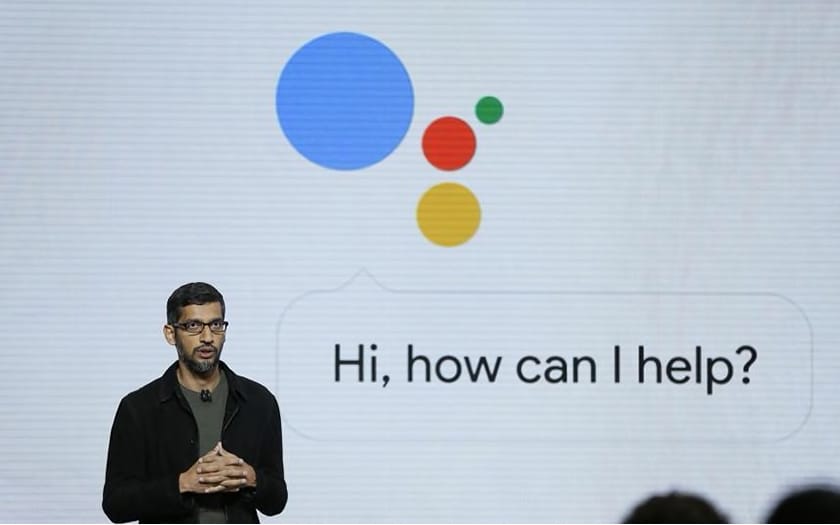For many marketers, Google means advertising. But Google also wants us to associate its name with artificial intelligence. Recent events illustrate how the company has one foot planted in the present and future. Can Google have its cake and eat it, too?
The Present: Advertising
The latest quarterly earnings announcement of Google’s parent, Alphabet, shows that Google remains a formidable force in the world of online advertising. Alphabet’s first-quarter revenues, $31.1 billion, outperformed analysts’ expectations. Why? Because Google is an advertising cash cow. As much as Alphabet likes to tout its forays into emerging technology, its money comes from Google’s ability to secure revenue via time-honored advertising tools such as AdWords.
Approximately $26.6 billion, or 86 percent of Alphabet’s quarterly revenue, came from Google advertising. Think about that: $26.6 billion. That’s enough to land a company in the Fortune500. Google is protecting its position by refining current tools such as AdWords while rolling out new tools to make online advertising more personal and mobile-centric. Although much has been said about Google’s struggle to make YouTube a safer advertising platform for brands, probably Google’s bigger threat is Amazon, which continues to ascend as a major search platform – and offers advertising tools of its own. As reported, Amazon is now a multi-billion dollar advertising giant. Google needs to adapt or fall behind.
The Future: Artificial Intelligence
The 2018 Google I/O event, occurring May 8-9, illustrates Google’s intent to change itself and the world around it. At this year’s I/O, Google has been pushing artificial intelligence through its products. For example, Google announced the creation of Duplex, an “AI System for Accomplishing Real World Tasks Over the Phone” in the words of a Google blog post. As Google noted:
The technology is directed towards completing specific tasks, such as scheduling certain types of appointments. For such tasks, the system makes the conversational experience as natural as possible, allowing people to speak normally, like they would to another person, without having to adapt to a machine.
Google CEO Sundar Pichai demonstrated how accurate Duplex already is when he showed how Duplex can make Google’s voice assistant (Google Assistant) smart enough to place a call to a hair salon and book an appointment with a real person, sounding so natural that a human being is not aware they are talking with a voice assistant.
Google also unleashed a number of AI-based product improvements ranging from a smarter, more personal Google Maps to a customized Google News. So why the push into AI? Because Google knows that the company needs to become more than a leading search platform. Google has long been evolving as a media platform for accomplishing everyday tasks, and in recent years, it has looked to emerging technology such as virtual reality to do so. Google needs to demonstrate to its advertisers that it can keep consumers inside the Google ecosystem, and simply making search better is not enough to do that.
If Google can pull off a future defined by AI, it will protect its advertising base. But here again, Amazon looms as a threat. Amazon is making its own investments into AI to be a smarter platform for its customers, both online and offline.
The competition between Google and Amazon is good for consumers and advertisers. Consumers should benefit from more personalized services while businesses have more choices to advertise. Choice is good. And Google wants to be the first choice. Contact us to learn more about how to thrive with online advertising with giants such as Google and Amazon.
